Medical English Communication,
MELSA Study Schedule
[Schedule of MELSA Cafe 2024 Lectures] April 3, 2024 (update by MELSA Secretariat)
| online Lecture ① English communication for healthcare |
online Lecture ② Medical English Step 1 |
on-site Lecture [A] Current Topics |
on-site Lecture [B] Pharmaceutical English in practical use |
|
| Lecturer |
Mr. Shishikura | Mr. Shishikura | Mr. Shishikura | Ms. Omori |
| day | the third Tuesday | the second Thursday | Occasionally /every two or three months |
the fourth Wednesday |
| lecture style | Zoom | Zoom | @Iidabashi | @Shimbashi or @Iidabashi |
| time | 20:00-21:30 | 14:30-16:00 | 19:30-20:50 | 15:00-16:20 |
| April | 4/16 | 4/11 | 4/30 | 4/24 @Shimbashi |
| May | 5/21 | 5/9 | 5/22 @Shimbashi | |
| June | 6/18 | 6/13 | 6/26 @Iidabashi | |
| July | 7/16 | 7/11 | 7/24 @Iidabashi | |
| August | 8/20 | 8/8 | 8/28 | |
| September | 9/17 | 9/12 | 9/25 | |
| October | 10/15 | 10/10 | 10/23 | |
| November | 11/19 | 11/14 | 11/27 | |
| December | 12/17 | 12/12 | 12/25 | |
| 2025 January |
1/21 | 1/9 | 1/22 | |
| February | 2/18 | 2/13 | 2/26 | |
| March | 3/18 | 3/13 | 3/26 |
*Day and time are subject to change without notice because of inconvenient
circumstances.
*On-site lectures might be cancelled if a lesson room is not available.
[MELSA Cafe 2024 Materials]
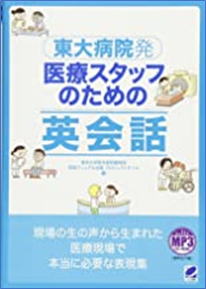
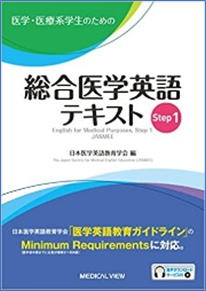
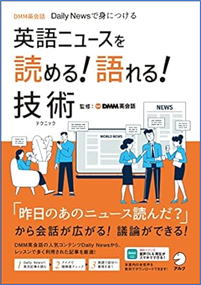
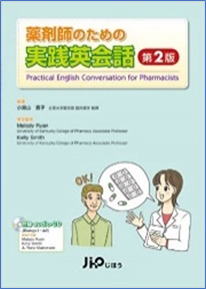
online lecture ① online lecture ② on-site lecture [A] on-site lecture
[B]
[Venue Map of Shimbashi] 2022
《Minato Ward Continuing Education Center (Balloon)》
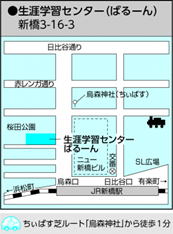
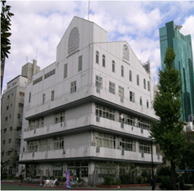
【Train】
1. Get off at JR Shimbashi Station and walk 3 minutes from Karasumori Exit
2. Subway Asakusa Line / Ginza Line, Yurikamome
Get off at Shinbashi Station and walk 4 minutes from the JR transfer exit
3. Get off at Uchisaiwaicho Subway Mita Line and walk 10 minutes from Exit A1
【Bus】
1 minute walk from Minato-ku Community Bus Chii-bus Shiba Route 85 "Karasumori Shrine"
[Venue Map of Iidabashi] 2022
"Tokyo Voluntary Action Center" 10F (close to JR Iidabashi Station)
1-1, Kagurakawashi, Shinjyuku-ku, Tokyo 162-0823

////////////////////////////////////////////////////////////////
All the MELSA Cafe programs of 2022 were successfully completed.
Thank you very much for your participation. (as of April 1st /2023)
[2022 MELSA Notification]
Now, we are planning to hold online study sessions (on Zoom) from April
in 2022.
Three kinds of textbooks will be used.
1) Basic session: "English for Nursing and Medical Staff" (Asahi
Press)
2) Continuing session: "Medical English Communication & Writing Skills Improvement"
(Kinpodo Publishing Co., Ltd.)
3) Pharmaceutical English in practical use session: "English Conversation
Handbook for Pharmaceutical Students and Pharmacists" (Tokyo Kagaku
Dojin)
[2022 Schedule of the Day] Study Group: MELSA Cafe @Online / Study Group:
MELSA Cafe @Shimbashi
(All finished)
| Online study or Offline study |
Continuing Textbook ② |
Basic Textbook ① |
Pharmaceutical English Textbook ③ |
Venue on-site |
Venue on-site |
| Lecturer or Facilitator |
Mr. Shishikura | Mr. Shishikura | Ms. Omori | Ms. Omori | Ms. Omori |
| Day | the second Thursday | the third Thursday | the third Thursday |
the fourth or third Tuesday |
the fourth or third Wednesday |
| Time | 20:00-21:30 | 14:30-16:00 | 10:00-11:30 | 18:00-19:20 Textbook ③ 19:30-20:50 Textbook ① |
13:30-14:50 Textbook ① 15:00-16:20 Textbook ③ |
| April | 4/14 | 4/21 | 4/21 | 4/26 | 4/27 |
| May | 5/12 | 5/19 | 5/19 | 5/24 | 5/25 |
| June | 6/9 | 6/16 | 6/16 | 6/21 | 6/22 |
| July | 7/14 | 7/21 | 7/21 | 7/26 | 7/27 |
| August | 8/11 | 8/25 changed |
8/18 | 8/23 canceled |
8/24 canceled |
| September | 9/8 | 9/15 | 9/15 | 9/20 Room #205 |
9/21 Room #205 |
| October | 10/13 | 10/20 | 10/20 | 10/25 canceled |
10/26 canceled |
| November | 11/10 | 11/17 | 11/17 | 11/22 Room#202 |
11/22 Room#205 |
| December | 12/8 | 12/15 | 12/15 | 12/20 canceled | 12/21 Room#205 |
| 2023 January |
1/12 | 1/19 | 1/19 | 1/24 | 1/25 |
| February | 2/9 | 2/16 | 2/16 | 2/21 confirmed Room#205 |
2/22 confirmed Room#205 |
| March | 3/9 | 3/16 | 3/16 | 3/21 confirmed Room#204 |
3/22 confirmed Room#205 |
[Update: February/02/2023]
*The date of lessons at the venue might be changed if it is not available
to rent.
[2022 Monthly Schedule of Textbooks] Track numbers & Chapter numbers
& Pattern / Case numbers
(All finished)
| Continuing Textbook ② |
Pharmaceutical English Textbook ③ / Track number |
Basic Textbook ① |
|
| Lecturer or Facilitator |
Mr. Shishikura | Ms. Omori | Mr. Shishikura or Ms. Omori |
| April | *Internal medicine Pattern 1, 2 Case 1-1 |
OTC Drugs: 1, 2 (+) 56, 57 Prescription Drugs: 26, 27 (+) 85, 86 Bedsides: 88, 89 (+) 51 |
Chapter 1 |
| May | Pattern 3, 4 Case 1-2 |
OTC Drugs: 3, 4 (+) 74, 75 Prescription Drugs: 28, 29,30 (+) 55 Bedsides: 90, 92 |
Chapter 2 |
| June | Pattern 5 Case 2-1, 2-2 |
OTC Drugs:6, 7 Prescription Drugs: 31, 32 Bedsides: 93, 94 |
Chapter 3 |
| July | Pattern 6, 7, 8, 9 Case 3 |
OTC Drugs: 8, 9 (+) 69 Prescription Drugs: 33, 34 (+) 52, 62 Bedsides: 67, 96 (+) 66, 64 |
Chapter 4 |
| August | Pattern 10 Case 4-1, 4-2 |
OTC Drugs: 10, 11 (+) 54, 70 Prescription Drugs: 35, 36 (+) 71 Bedsides: 97, 98 |
Chapter 5 |
| September | Pattern 11, 12, 13 Case 5 *Internal medicine will be finished. |
OTC Drugs: 12, 13 (+) 76 Prescription Drugs: 37, 38 (+) 53, 84 Bedsides: 99, 100 (+) 58, 59 |
Chapter 6 |
| October | Review of some cases from April to October | OTC Drugs: 14, 15 (+) 77 Prescription Drugs: 39, 40 Bedsides: 101, 102 (+) 60, 61 |
Chapter 7 |
| November | *Pediatrics Pattern 1, 2, 3, 4, 5 Case 6-1, 6-2 |
OTC Drugs: 16, 17 (+) 78 Prescription Drugs: 41, 42 (+) 63 Bedsides: 103 |
Chapter 8 |
| December | Pattern 6, 7 Case 7-1, 7-2 |
OTC Drugs: 18, 19 (+) 79 Prescription Drugs: 43, 44 Bedsides: 104 |
Chapter 9 |
| 2023 January |
Pattern 8 Case 8-1, 8-2, 8-3 |
OTC Drugs: 20, p38-41 (+) 80 Prescription Drugs: 45, 46 Bedsides: 105, 106 (+) 72, 73 |
Chapter 10 |
| February | Pattern 9, 10 Case 9-1, 9-2 |
OTC Drugs: p42-45, p46-47 Prescription Drugs: 47, 48 Bedsides: 107, 108 (+) 60, 61 |
Chapter 11 |
| March | Pattern 11 Case 10-1, 10-2, 10-3 *Pediatrics will be finished. |
OTC Drugs: Track 21, 22 (+) 87 Prescription Drugs: 81, 82, 83 (+) 65 Bedsides: 109, 110 (+) 60, 61 |
Chapter 12 |
| the next year April |
To be continued. | A new textbook will be used. |
[Update: February/02/2023]
*The contents might be changed due to a monthly progress in each lecture.
*The order of track numbers we learn in Pharmaceutical English monthly
are at random.
//////////////////////////////////////////////////////////////////////////////////////
*We are very sorry that all the study sessions will be cancelled for the
time being from April.
The schedule or contents might be subject to some circumstances without
notice.
◆2020 Medical/Healthcare English Communication (All Finished)
| 2020 | Subjects & Materials (Review) |
|---|---|
| January | [Skeletal System] Bones and joints and their associated cartilage; Supports and protects
the body, provides muscle attachment sites, exercises of the body, places
for blood cell production cells, storage of minerals and lipids (fat). [Muscular system] Skeletal muscles (usually attached to bones, so called); Body movement such as walking, stability of body position (posture), production of body temperature. [Respiratory system] Lungs and respiratory tracts (airway includes pharynx (throat), larynx (vocalizer), trachea, bronchi; Inhales air and carries oxygen in it to blood, It excretes carbon dioxide in the blood into the exhaled air, assists in regulating the acid-base balance of body fluids, and vocalizes as air flows from the lungs through the vocal cords. |
| February | [Cardiovascular System (Circulatory system)] Blood, heart, blood vessels; Pumps blood to blood vessels. Blood carries
oxygen and nutrients to cells, and carbon dioxide and waste products from
cells. In addition, blood assists in regulating acid-base balance, body
temperature, and water in body fluids. Blood components are involved in
defense against disease and in repairing damaged blood vessels. [Digestive system (Gastrointestinal system)] Organs that make up the digestive tract, which is a long tube (oral cavity, pharynx (throat), esophagus, stomach, small intestine, large intestine, anus). Organs associated with the digestive tract and assisting digestion (salivary glands, liver, gallbladder, pancreas ); Physical and chemical decomposition of food, absorption of nutrients, excretion of solid food residues. [Urinary system (Urology)] Kidneys, ureters, bladder, urethra; urine production , retention, excretion, excretion of waste products, regulation of blood volume and chemical composition, maintenance of acid-base balance of body fluids, maintenance of electrolyte balance, regulation of erythrocyte production. |
| March | [Nervous system] The brain, spinal cord, nerves and special organs such as eyes and ears;
Generates action potentials (nerve impulses) and controls body activities.
It senses and judges changes in the environment inside and outside the
body, and responds by muscle contraction or gland secretion. [Endocrine system] Hormone-producing glands (pineal, hypothalamus, pituitary, thymus, thyroid, parathyroid (parathyroid), adrenal gland, pancreas, ovary, testis) and other organs Hormone producing cells.; Regulates body activity by hormone secretion. Hormones are chemical messengers that are carried in the blood from endocrine glands or tissues to target organs. [Reproductive system] Gonads (ovaries in women, testis in men ) and accessory organs (tubal, uterine, and vaginal in women, testicular epithelium, vas deferens, and penis in men). Various accessory glands (mammary and vestibular glands in women, prostate and seminal vesicles in men); The gonads produce germ cells (sperm or eggs). The sperm and egg combine to form a new individual. The gonads also secrete hormones that regulate reproduction and other functions. The appendages transport and store germ cells. The mammary glands produce milk. |
◆2019 Medical/Healthcare English Communication mini-lesson (all finished)
| 2019年 | 1 period Internal medicine (a) (b) |
2 period Surgery (a) (b) |
|---|---|---|
| January | (a) enteritis、 (b) influenza |
(a) gallstone、 (b) appendicitis |
| February | (a) bronchial asthma (b) type 2 diabetes mellitus |
(a) gastric ulcer and gastric cancer、 (b) GERD |
| March | (a) hypertension (b) stroke |
(a) hay fever、 (b) ear infection (Otitis Media) |
| April | (a) adult type atopic dermatitis (b) herpes zoster/shingles |
(a) dizziness(Meniere’s Disease), other eye diseases (b) floaters/Muscae Volitantes |
| May | (a) acute coronary syndrome (b) palpitations |
(a) conjunctivitis (b) cataract |
| June | (a) HCV chronic hepatitis C、 (b) thyroid disease |
(a) Migraine without Aura (b) Migraine with Aura |
| July | (a) iron deficiency anemia (b) house call (a doctor's visit) |
(a) dental appointment (b) toothache |
| August | (a) vaccination in children、 (b) chickenpox (varicella)(旧版CD) |
(a) backache/low back pain/lumbago (b) knee ache/osteoarthritis |
| September | (a) febrile seizure (b) measles/rubella |
(a) osteoporosis、 (b) locomotive syndrome |
| October | (a) roseola infantum、 (b) pediatric allergy |
(a) acute cystitis (b) benign prostatic hypertrophy (BPH)/prostate enlargement |
| November | (a) medical English for pharmacists、 (b) prescription for high blood pressure |
(a) hematuria (b) climacteric syndrome (obstetrics and gynecology) |
| December | (a) overview: obstetrics & gynecology (period, discharge) (b) uterus myoma |
(a) uterus myoma、 (b) cervical cancer check-up and HPV vaccination |
| 2020 January |
Review: | Review: |
| February | Review: | Review: |
| March | Review: | Review: |
◆2018 Medical/Healthcare English Communication mini-lesson (all finished)
| 2018 | Contents | |||
|---|---|---|---|---|
| January | a: emergency department; 1) reception desk, 2) examination room b: 1) acronyms and abbreviations, 2) medical ethics / primary care |
|||
| February | a: emergency department; 3) giving injections, 4) explanation to a family
member b: medical terminology / lay terms |
|||
| March | a: meeting the patient; 1) self-introduction and first meal , 2) orientation
to the ward b: word formation / medical Terms |
|||
| April | a: meeting the patient; 3) asking height, weight, and temperature, 4) obtaining
the patient's history b: 1) terms for body surface, 2) anatomy & organs |
|||
| May | a: general care of patients; 1) checking the patient's condition, 2) blood
test explanation b: 1) skeletal system / muscular system, 2) nervous system / endocrine system |
|||
| June | a: general care of patients; 3) drawing a blood sample b: 1) physiology / pathology, 2) urology |
|||
| July | a: orientation for operation; 1) explaining about the operation: basic
procedures, 2) explaining about the operation: anesthesia b: microbiology / immune system |
|||
| August | a: taking the patient into surgery b: 1) pharmacology, 2) circulatory system / digestive system, ER (AED) |
|||
| September | a: postoperative care; observation after operation (1) (2) b: respiratory system / endocrine system |
|||
| October | a: postoperative care; urinary catheterization (1) (2) b: cardiology / neurosurgery / neurology |
|||
| November | a: patient discharge; 1) instruction before discharge , 2) instruction
on diet b: urology / otolaryngology / obstetrics / gynecology |
|||
| December | a: appointment as an outpatient , pharmacy and filling a prescription b: dermatology / ophthalmology / pediatrics |
|||
◆2020 Schedule: Sports & Volunteering, English Communication (all finished)
| 2020 | Sports |
|
| January | tennis canoeing |
Mannersfor eating skewered foods Gorgeous Japanese kimono |
| February | relay sailing |
Manners for eating Nabe (hot pot dishes) cooked at the table Theme parks in Japan |
| March |
surfing women' s gymnastics |
Review: Guide to Japanese Table Manners Spring festivals inJapan |
◆2019 Schedule: Sports & Volunteering, English Communication mini-lesson (all finished)
| 2019 | theme A Sports events |
Japanese food & culture |
| January |
a) men’s basketball b) archery |
a) o-Shogatsu/the New Year holidays b) Japanese New Year’s special dishes |
| February | a) skateboarding b) mountain biking |
a) onsen/hotspring b) a formal Japanese room: tea ceremony and manners for drinking match |
| March | a) beach volleyball b) rowing |
a) Japanese communication style b) the basics about washoku, a UNESCO Intangible Cultural Heritage |
| April | a) taekwondo b) BMX bicycle motocross |
a) Kabuki theater b) greetings, “Itadaki-masu” and “Gochisousama-deshita” |
| May | a) rugby sevens b) field hockey |
a) the Shin-Yokohama ramen Museum b) how to use chopsticks <br> |
| June | a) diving b) women’s basketball |
a) urushi/shikki /lacquerware b) how to arrange and use Japanese dishware/lacquerware |
| July | a) decathlon b) 100-meter sprint |
a) exciting festivals in Japan b) at a sushi restaurant |
| August | a) decathlon b) 100-meter sprint |
a) izakaya/Japanese pub b) some certain manners in izakaya |
| September | a) triathlon b) handball |
a) Japanese subcultures b) “Sanuki udon”, how to place an order |
| October | a) men’s gymnastics b) road cycling |
a) thanks to homemade Japanese dishes b) fish dishes/the Sashim |
| November | a) 3000-meter steeplechase b) modern pentathlon |
a) Japanese martial art b) fresh seafood tempura at the restaurant in the fish market |
| December | a) soccer( 8-11)/ football b) weight lifting |
a) Lifestyle-related diseases b) to take friends on Japanese gourmet tours |
◆2017-2018: Additional reading practice and role-play dialog (finished)
| Episode / Dialogue | Episode / Dialogue | ||
|---|---|---|---|
| # 1 | Special interview (1) The Tokyo 2020 games vision and concepts |
#11 | about volunteers at the golf event |
| #2 | Special interview (2) a massage for volunteers at the Tokyo 2020 Games |
#12 | about other recommendation being volunteers |
| #3 | at the café (1) : about sports volunteers | #13 | about a typical day as a spotrs volunteer |
| #4 | at the café (2) : about an experience at the London 2012 Games |
#14 | a great chance for international exchange |
| #5 | about communicatio in English and the proper mindset | #15 | being a volunteer at the swimming event |
| #6 | about being a regional volunteer | #16 | to enjyoy the game as spectators |
| #7 | how to apply for volunteer jobs at the sports competition | #17 | to learn the job of a medical support volunteer |
| #8 | about marathon volunteers | #18 | to assist with a doping test |
| #9 | about volunteers at bid competitions | #19 | to support at the judo event |
| #10 | about volunteers' spirit | #20 | introducing Japanese culture "tea ceremony" |
◆2018 Additional warm-up CD listening practice and words and phrases for sports (all finished)
| 2018 | warm-up listening practice | words and phrases for sports |
|---|---|---|
| January | Marathon: the basics | bobsleigh / luge / skeleton |
| February | Marathon: the rules of the game | skiing / curling / hockey / ice hockey |
| March | Volleyball: the basics | volleyball / tennis / football |
| April | Golf: the basics | golf / baseball / basketball |
| May | Table tennis: the basics | table tennis / badminton |
| June | Trampoling: the basics | gymnastics (1) / gymnastics (2) |
| July | Artistic swimming: the basics & rules | aquatics / canoe / rowing / sailing |
| August | Swimming: the basics | sport climbing / skateboarding boccia / goalball |
| September | Equestrian: the basics | athletics (1) athletics (2) / equestrian |
| October | Shooting: the basics | shooting / archery / cycling |
| November | Wrestling: the basics | wrestling / weightlifting |
| December | Boxing: the basics | karate J/ udo / fencing |
◆2015-2018 Basic Theme: International Exchange, Sports and Volunteering, and Medical/Healthcare Communication (all finished)
| [ Communication in Daily Life: Basic] Small Talk for Daily Conversation |
| 1. first greetings, welcome greetings |
| 2. exchange greetings about seasons and weather |
| 3. praise, apology, advice |
| 4. enrich conversation with emotional feelings |
| 5. residential area, direction from the nearest station |
| 6. workplace, commute, transportation, designating area |
| 7. volunteer activities, community activities |
| 8. introducing club activities, sports for fun |
| 9. small talk for hospitality |
| 10. foods, beverages, smoking, coffee |
| [Sports and Volunteering: Basic] Small Talk for Sports & Volunteer Activities |
| 1. Break the ice; "Which sport do you like?" |
| 2. general sports |
| 3. experience of sports & circles |
| 4. watching sports, cheer leader |
| 5. track & field |
| 6. combative sports |
| 7. table tennis, volleyball |
| 8. fishing, skiing, golf |
| 9. baseball, soccer, golf |
| 10. various kind of hobbies, the game of "go" |
| [Medical/Healthcare Communication: Basic] Essential medical terminology, Basic Medical/Healthcare Communication and Volunteer Interpreting |
| 1. body feature, height and weight |
| 2. strength, health conditions |
| 3. illness, examination, treatment |
| 4. parts of the body, organs, medications |
| 5. diseases, injury |
| 6. symptoms, diagnosis of diseases |
| 7. the flu (influenza), common cold, burn |
| 8. regional medical service, home visit and care |
| 9. occupational diseases/hazards and care |
| 10. disaster and care |
| 11. receptionist at the counter in the hospital |
| 12. direction guide (to show the way to ~), medical departments, medical professionals |
| 13. consultation, treatment, account (cashier) |
| 14. ER (emergency room), first aid, AED (automated external defibrillator) |
| [Complementary and Alternative Medicine (CAM): Basic] Complementary and Alternative Medicine (CAM), Basic knowledge, Communication and Volunteer Interpreting |
| 1. registration, accounting, health insurance |
| 2. taking vital signs |
| 3. pains, pain scale (score) |
| 4. questionnaire |
| 5. at the acupuncture clinic |
| 6. physiotherapy, rehabilitation, shiatsu (finger-pressure therapy) |
Medical English Learning Support Association (MELSA)NPO MELSA Office:
e-mail: melsa@outlook.jp
Non-Profit Organization
Medical English Learning Support Association
Inquiry/Application:Click here